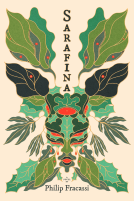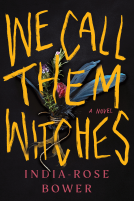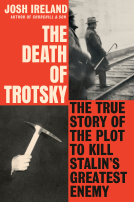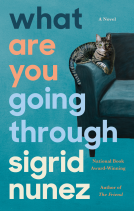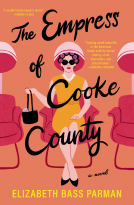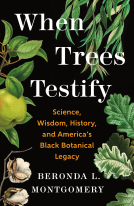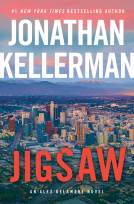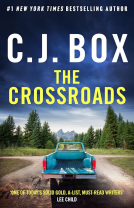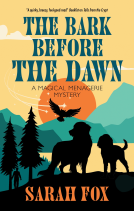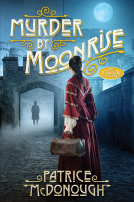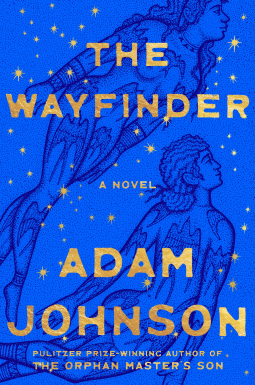
The Wayfinder
A Novel
by Adam Johnson
This title was previously available on NetGalley and is now archived.
Send NetGalley books directly to your Kindle or Kindle app
1
To read on a Kindle or Kindle app, please add kindle@netgalley.com as an approved email address to receive files in your Amazon account. Click here for step-by-step instructions.
2
Also find your Kindle email address within your Amazon account, and enter it here.
Pub Date Oct 14 2025 | Archive Date Nov 14 2025
Description
Named one of Ten Best Books of 2025 by The Wall Street Journal
Named one of Ten Best Books of 2025 by The Washington Post
Named a Best Novel of 2025 by NPR and Publishers Weekly
Named a Best Historical Novel of 2025 by The New York Times
“A powerful and original epic . . . Deadly politics, tragic romance and dangerous sea journeys keep the drama at a spirited boil.”
—The New York Times
“An epic of extraordinary abundance . . . modern and mythological . . . wondrous enough to endure.”
—The Wall Street Journal
“An epic that feels less created than unearthed . . . The Wayfinder is sui generis—a tapestry of South Pacific myth, archetypal quest, political allegory, environmental jeremiad and feminist revision that feels both ancient and impossibly relevant.”
—The Washington Post
Talking corpses, poetic parrots, and a fan that wafts the breath of life—this is the world young Kōrero finds herself thrust into when a mysterious visitor lands on her island, a place so remote its inhabitants have forgotten the word for stranger. Her people are desperate and on the brink of starvation, and the wayward stranger offers them an impossible choice: they can remain in the only home they’ve ever known and await the uncertainty to come, or Kōrero can join him and venture into unfamiliar waters, guided by only the night sky and his assurance of a bountiful future in the Kingdom of Tonga. What Kōrero and her people don’t know is that the promised refuge is no utopia—instead, Tonga is an empire at war and on the verge of collapse, a place where brains are regularly liberated from skulls and souls get trapped in coconuts with some frequency.
The perils of Tonga are compounded by a royal feud: loyalties are shifting, graves are being opened, and everyone lives in fear of a jellyfish tattoo. Here, survival can rest on a perfectly performed dance or the acceptance of a cup of kava. Together, the stranger and Kōrero embark upon an epic voyage—one that will deliver them either to salvation or to the depths of the Pacific.
Evoking the grandeur of Wolf Hall and the splendor of Shōgun, the Pulitzer Prize–winning novelist Adam Johnson conjures oral history, restores the natural world, and locates what’s best in humanity. Toweringly ambitious and breathtakingly immersive, The Wayfinder is an instant, timeless classic.
A Note From the Publisher
Advance Praise
★ "A majestic saga of political unrest in the South Pacific and a girl’s quest to save her people. . . This is remarkable." —Publishers Weekly (starred review)
“How lucky we are that Adam Johnson has ignited for us this wild, epic, and utterly captivating skein of human history. His years of immersion in the Polynesian oral tradition and research into the Tu‘itonga Empire shimmer through The Wayfinder at every twist, but his rollicking storytelling leads the way.” —Jennifer Egan, author of A Visit from the Goon Squad and The Candy House
"Epic in every sense of the word, this is a high wire act that burns the net below. Epic in that it swings with the same music in great works from Gilgamesh on down. Epic in scope that races across time and space until one is no different from the other. Epic in that we are swept up in a journey where not even the reader returns. In The Wayfinder, myth becomes fact, magic becomes wisdom, poetry is in the mouths of birds, and a young girl sets out to remake the world." —Marlon James, Booker Prize-winning author of Moon Witch, Spider King
"The Wayfinder is a singular achievement. Everything you can ask for in a reading experience, and, because it’s Adam Johnson, a little bit more. There are lines in here so pure and direct and lyrical and right, they make my teeth ache." —Stephen Graham Jones, author of New York Times bestseller The Buffalo Hunter Hunter
Available Editions
| EDITION | Other Format |
| ISBN | 9780374619572 |
| PRICE | $30.00 (USD) |
| PAGES | 736 |
Available on NetGalley
Average rating from 66 members
Featured Reviews
Thank you to NetGalley and Farrar, Straus and Giroux for the ARC of The Wayfinder by Adam Johnson.
I give this 4.5 stars overall.
I absolutely love Adam Johnson's work. Both The Orphan Master's Son and Fortune Smiles are favorites of mine . His short story, Nirvana, lives rent free in my head. The man is just talented. He's a must read for me.
The Wayfinder, a historical epic, was not what I expected from him, but one that I fully embrace on the other side of those 736 pages. Johnson has wells of range and the artistic vision and The Wayfinder is a shining example of how we can always expect whatever comes next from him will be top tier.
The story is told over two timelines, which may not seem clear in the first 15% or so, but does solidify early-ish in the novel. One timeline follows Kōrero, a young woman on an island inhabited by shipwrecked slaves three generations ago. No strangers have visited their island, and it is rapidly nearing the full depletion of its resources with no wood available for boats and no community members with the skills to sail. or navigate. By some miracle, two young brothers on their own journey wash ashore on Kōrero's island and her people begin to determine a way to save themselves.
The other timeline happens in the very near past and revolves around the two brothers and their family and their longer journey to end up on Kōrero's island. My one of three minor gripes with this whole novel is this narrative difference, because, with the timelines being so close in time, it, at times, did not work for me. Truly, what I wanted was more of Kōrero and her journey. thinking from the description that this is about her journey to leadership, but I think the majority of the book is about the brothers and the royal family of Tonga and the empire's negative influences. I think I would have been fine if the first timeline came first and there was a second part of the novel with Kōrero's storyline and that would have made everything feel more balanced instead of back-and-forth just when you get invested in each part. But honestly, that's very minor, because Johnson tells the story of the Tu'i Tonga empire and introduces the characters in such a way that you want to know more about each of them and you want each chapter to spend more time with whomever is being featured at the moment. (The second gripe is I didn't ever have any idea of what century/time I was in exactly, given all my knowledge of the Tongan empire comes from this book, so I would have loved some references to the year, both when this begins and how much time passes with all of these water journeys, because I wasn't sure how long the timeline actually was. The third gripe is that I wanted to know for sure about Papa Toki, Hine and the others given Kōrero's tasks at the end of the novel - I think having a knowledge of how much time had passed in the novel would have helped with this).
Johnson does not shy away from darker aspects of war, PTSD, sexual assault of women, and slavery. He also features the depletion of resources and extinction of animals, the purposeful burning of islands to de-home inhabitants, and the offerings required to the kingdom that leave communities with nothing. The overarching story covers the themes of empire, of environmental and animal conservation, and of trauma, while also bringing messages of hope and healing and forgiveness and the power of community and nonviolence in a world full of violence.
There are little note sections interspersed throughout chapters that convey the oral storytelling traditions of the Tongans and recount tales that may directly influence the characters or the history and culture. There is also a lot of poetry and translations of Tongan and Fijian language that adds emphasis to the stories. You can tell Johnson researched and carefully arranged these stories and these usages, and I appreciate his efforts to respectfully bring this empire to life in so many faceted ways.
When it comes to characters, Johnson can make you both love and hate a horrendous character, or feel such sympathy for those that don't have the freedom to feel it for themselves: Aho, Tapoto, Lolohea, the Wayfinder, Finau, Moon Appearing, the Tu'i Tonga, Sun Shower, the Tamaha, Punake, Havea, Tiri, etc. etc. So many characters have the opportunity to shine and show multifaceted personalities and character arcs, and all the arcs felt true to what we were told of those people. Even knowing with Johnson's hints who would die several chapters ahead, it would still hit like a gut punch even when you learned more about the other characters and their motivations, while not ideal, were valid to their feelings. This is what makes Johnson so fantastic - he can make you cheer for a character and in the next sentence turn that on a dime and it is all entirely planned for.
Simply put, this one has the makings of a modern classic. The best book I've read in a long time. Johnson tackles all the big themes of life: love, war, religion, gender relations, resource depletion, the clash between cultures - all nestled in the difficult and tender interactions of human beings. The story weaves deftly between two timelines, so subtly that you don't notice until about halfway through. Korero is a teenage girl living on a Pacific Island that is nearing the end of its resources, and its people have forgotten how to navigate the sea to go to somewhere new. Her story interacts with two Tongan boys, the sons of the Tongan king, caught in the end of their father's life and the intrusion of Aho, the king's PTSD-laden brother and his uncontrollable violence. Aho is an especially nuanced character, broken and tender-hearted but with a violent streak he can't control that makes him difficult to like. As the characters voyage between islands, we see the violence inherent in imperial systems, the result of casual depletion of the land, and the fallout that ordinary people suffer while the guards are changed. I learned much about Polynesian culture and history - all the more remarkable given the author's American background. Highly recommended for a long and engrossing reading that will stay in your head all day, and urge you to return.

